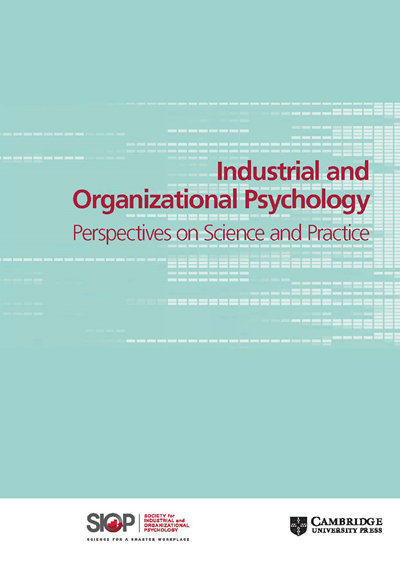Instilling ethics in I-O: The responsibility of graduate training programs
IF 4.3
3区 心理学
Q1 PSYCHOLOGY, APPLIED
Industrial and Organizational Psychology-Perspectives on Science and Practice
Pub Date : 2023-05-09
DOI:10.1017/iop.2023.4
引用次数: 0
Abstract
In Watts and colleagues ’ (2022) focal article, the authors demonstrate the relevance of the APA Ethics Code for the field of I-O psychology, while also highlighting some key deficiencies, including those pertaining to I-O trainees; “ The code is silent regarding its relevance to students ” (Watts et al., 2022, pg. 25). In this statement, the authors were suggesting that a revised Ethics Code should explicitly clarify the extent to which it applies to students and should include more references to ethical situations students may encounter (e.g., academic integrity). We extend this statement to also point out the deficiency in the code regarding how to properly train graduate students in ethics. A relevant and revised Ethics Code can only help guide I-O psychologists if they have proper education and training around it. Accordingly, we respond to two of the questions posed by Watts and colleagues (i.e., questions #3 and #6).向I-O灌输道德:研究生培训项目的责任
在Watts及其同事(2022)的焦点文章中,作者展示了APA道德准则与I-O心理学领域的相关性,同时也强调了一些关键缺陷,包括与I-O学员有关的缺陷;“该准则对其与学生的相关性保持沉默”(Watts et al., 2022,第25页)。在此声明中,作者建议修订后的道德准则应明确澄清其适用于学生的程度,并应更多地提及学生可能遇到的道德状况(例如,学术诚信)。我们扩展这一说法,也指出了规范中关于如何正确培养研究生道德的不足。一份相关的、经过修订的道德守则,只有在对I-O心理学家进行了适当的教育和培训后,才能对他们起到指导作用。因此,我们回答了Watts及其同事提出的两个问题(即问题#3和#6)。
本文章由计算机程序翻译,如有差异,请以英文原文为准。
求助全文
约1分钟内获得全文
求助全文
来源期刊

Industrial and Organizational Psychology-Perspectives on Science and Practice
PSYCHOLOGY, APPLIED-
CiteScore
7.70
自引率
10.10%
发文量
85
期刊介绍:
Industrial and Organizational Psychology-Perspectives on Science and Practice is a peer-reviewed academic journal published on behalf of the Society for Industrial and Organizational Psychology. The journal focuses on interactive exchanges on topics of importance to the science and practice of the field. It features articles that present new ideas or different takes on existing ideas, stimulating dialogue about important issues in the field. Additionally, the journal is indexed and abstracted in Clarivate Analytics SSCI, Clarivate Analytics Web of Science, European Reference Index for the Humanities and Social Sciences (ERIH PLUS), ProQuest, PsycINFO, and Scopus.
 求助内容:
求助内容: 应助结果提醒方式:
应助结果提醒方式:


